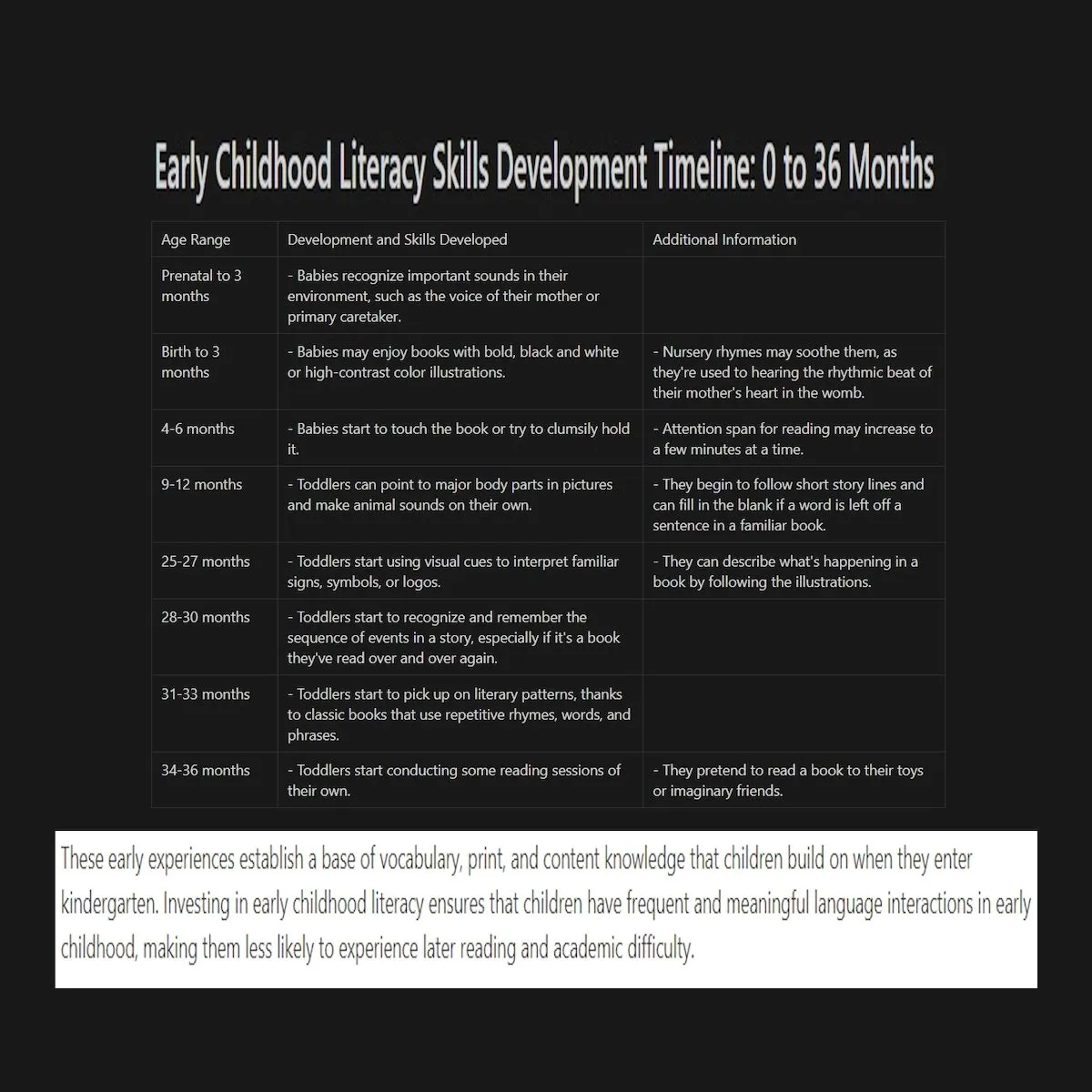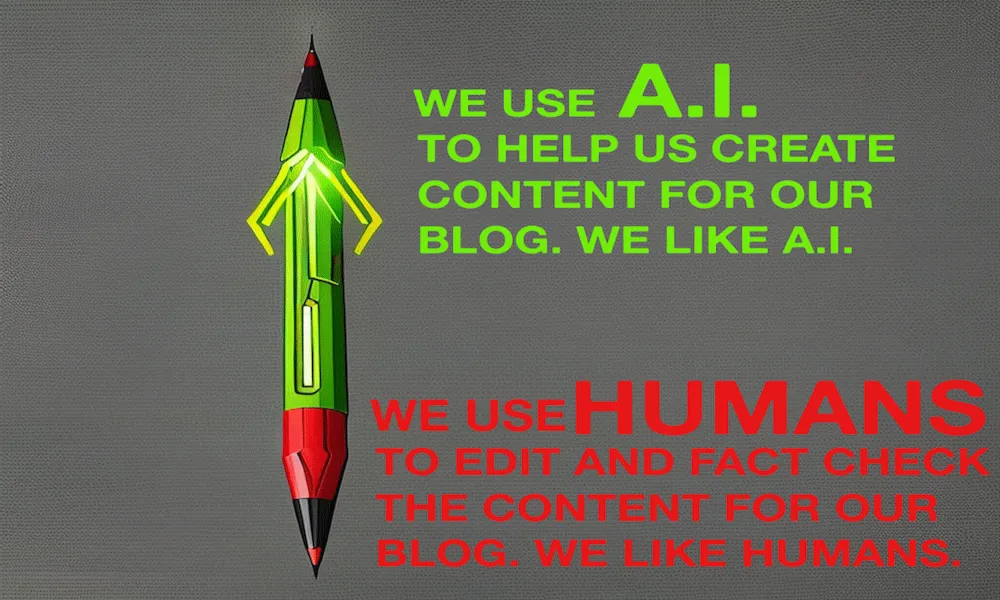Mastering Early Childhood Cognitive Development
 A Guide to Cognitive Development in Early Childhood: Stepping Stones and Strategies
A Guide to Cognitive Development in Early Childhood: Stepping Stones and Strategies
 INTRODUCTION
INTRODUCTION
As a parent, you want your child to reach their full potential and excel in all areas of life. One of the most important aspects of early childhood development is cognitive development. Cognitive development refers to the mental processes that enable a child to think, learn, reason, and solve problems. In this blog post, we will delve deep into what cognitive development means and why it is significant for early childhood growth. We will also discuss the key stepping stones in cognitive development that parents should recognize and track progress over time. Additionally, we will explore how personalized learning paths can enhance cognitive development and how LearningTime Canada is using AI-generated books to stimulate young minds. Finally, we will highlight the importance of awareness in early cognitive development and how parents can contribute to their child's growth.

Table of Contents
Mastering Early Childhood Cognitive Development
- The Significance of Cognitive Development in Early Childhood
- Understanding Cognitive Development
- The Impact of Cognitive Development on a Child's Growth
- Recognizing Cognitive Development Stepping Stones
- Identifying Key Stepping Stones
- Importance of Observing Developmental Progress
- Personalized Learning Paths for Enhancing Cognitive Development
- The Role of Personalized Learning Paths
- AI-Generated Books and Cognitive Stimulation
- Cognitive Development and Schooling
- The Influence of Early Education on Development
- School Activities Promoting Cognitive Skills
- How LearningTime Canada Nurtures Cognitive Development
- Our Approach to Tailored Learning Experiences
- The Use of Stories for Engaging Young Minds
- The Need for Awareness in Early Cognitive Development
- The Importance of Monitoring Developmental Progress
- How Can Parents Contribute to Their Child's Cognitive Development?
- How Do Personalized Learning Paths Benefit Cognitive Development in Children?
FREQUENTLY ASKED QUESTIONS ANSWERED
- What is cognitive development?
- Why is cognitive development important for a child?
- What are the different stages of cognitive development in early childhood?
- Are there any long-term effects of early childhood cognitive development on academic performance?
- Are there any specific activities or games that can promote cognitive development in young children?
- What factors affect early childhood cognitive development?
- Can environmental factors impact cognitive development in young children?
- What role does nutrition play in early childhood cognitive development?
- How Does Early Education Affect a Child’s Development?
- What is considered ‘normal’ cognitive development in early childhood?
CONCLUSION
Mastering Early Childhood Cognitive Development

The Significance of Cognitive Development in Early Childhood
Laying the foundation for future learning, early childhood cognitive development encompasses language growth, problem-solving, and decision-making skills. Shaping a child’s understanding of the world, it influences intellectual development, social interactions, and emotional well-being. This developmental stage impacts a child’s ability to learn, think, and process information, setting the stage for lifelong learning.
Understanding Cognitive Development
Understanding cognitive development in early childhood is crucial to child's success as it involves the growth of thinking, reasoning, and understanding. It encompasses memory, attention, perception, and language development. This preparation for academic learning includes knowledge acquisition, problem-solving abilities, and decision-making skills, ultimately tailoring effective learning experiences for children.
The Impact of Cognitive Development on a Child's Growth
The cognitive development during a child's early years plays a pivotal role in their overall growth, influencing their social, emotional, and behavioral development. It nurtures their creativity, curiosity, and adaptability to new ideas and learning challenges, while also shaping their ability to navigate unfamiliar experiences and learning environments. This forms a solid foundation for their future learning and development, setting them up for success.

Recognizing Cognitive Development Stepping Stones
It is crucial to identify important stepping stones in development during early childhood in order to facilitate effective learning experiences. By observing the progress of development, we can recognize cognitive changes that are essential for the growth and education of children. This recognition of cognitive characteristics enables us to have a better understanding of individual children's developmental stages, which in turn allows us to begin to tailor learning paths accordingly.
Identifying Key Stepping Stones
Identifying the cognitive stepping stones in early childhood is vital for understanding and supporting a child's cognitive development. Recognizing developmental stepping stones helps in observing and understanding cognitive changes, essential for early childhood growth. Understanding the cognitive characteristics of early childhood is crucial for personalized learning paths and tailored educational experiences, promoting greater cognitive development.
Importance of Observing Developmental Progress
For young children in preschool, observing their development is vital for cognitive growth. It provides an opportunity to identify cognitive changes and stepping stones that are crucial to early childhood education. Tracking developmental progress also helps in understanding individual differences and cognitive developmental stages. By monitoring a child's behavior, language skills, problem-solving abilities, and social interaction, teachers and caregivers can tailor their approach to meet the unique needs of each child. Observing a child's development not only supports their cognitive growth but also helps in identifying potential developmental delays or challenges that may require additional support. It plays a crucial role in promoting healthy brain development and ensuring that every child has access to the resources they need to reach their full potential.

Personalized Learning Paths for Enhancing Cognitive Development
Personalized learning paths cater to individual cognitive growth and developmental needs, adapting to a child’s unique learning style, pace, and preferences. By offering tailored experiences that stimulate cognitive skills development, these paths promote greater depth of learning. They enhance cognitive development through adaptive activities that cater to individual differences and varying rates of progress.
The Role of Personalized Learning Paths
Personalized learning paths play a vital role in fostering cognitive growth by tailoring specific learning objectives for children. They offer personalized opportunities for cognitive skill development, promoting individualized experiences and supporting cognitive growth in diverse learning domains. By creating a learning environment that encourages development at the child’s pace, personalized learning paths significantly enhance early childhood cognitive development.
AI-Generated Books and Cognitive Stimulation
AI-generated books provide interactive experiences to promote early cognitive development. They engage children with interactive storytelling, integrating learning with play to stimulate cognitive growth. These books offer personalized, interactive content, enhancing cognitive stimulation and development. By offering tailored cognitive learning experiences, AI-generated books play a significant role in stimulating cognitive skills in young children.

Cognitive Development and Schooling
Schooling plays a vital role in shaping a child’s cognitive abilities and problem-solving skills. It significantly impacts cognitive development by providing diverse learning experiences in the school setting. These experiences foster intellectual growth and influence cognitive development during early childhood. The school environment acts as a catalyst in nurturing cognitive development, contributing to a child’s overall cognitive growth.
The Influence of Early Education on Development
Structured learning experiences in early education shape child's interests and cognitive development and introduce children to various learning domains. These experiences provide opportunities for cognitive skills development in a supportive environment, promoting intellectual growth and cognitive abilities. The influence of early education extends to social, emotional, and cognitive growth, impacting developmental stages in interesting ways.
School Activities Promoting Cognitive Skills
Engaging children in problem-solving tasks, school activities promote cognitive skills. Hands-on learning experiences foster cognitive development, stimulating growth in diverse learning areas. These activities encourage critical thinking, creativity, and intellectual exploration, enhancing cognitive growth. By offering opportunities for problem-solving and intellectual exploration, school activities play a pivotal role in promoting early childhood cognitive development.

How LearningTime Canada Nurtures Cognitive Development
LearningTime Canada is committed to promoting cognitive development by providing age-appropriate learning resources, nurturing cognitive growth, and integrating developmental stepping stones. The organization strives to stimulate cognitive abilities through engaging educational content, designed to create a supportive and enriching learning environment for preschool children. By offering various innovative ways to stimulate cognitive development, it significantly influences the child's developmental stages. LearningTime Canada focuses on enhancing cognitive abilities such as problem-solving, memory retention, attention span, and critical thinking skills that are vital for a child's overall growth and success. Their approach is centered around developing the child's unique strengths while helping them overcome their weaknesses. By providing personalized and interactive learning experiences, LearningTime Canada aims to empower children with the tools they need to thrive in their academic journeys and in life.
Our Approach to Tailored Learning Experiences
Tailored learning experiences promote cognitive changes in early childhood, supporting individual cognitive growth. They enhance cognitive skills development through personalized learning paths, fostering cognitive development. Customized learning experiences play a key role in encouraging cognitive growth, for example, providing a great way for children to develop new skills and problem-solving abilities.
The Use of Stories for Engaging Young Minds
Engaging stories drive cognitive growth during early childhood, promoting intellectual development. They play a pivotal role in engaging young minds and enhancing cognitive skills. Storytelling effectively contributes to the cognitive development of preschool children, supporting their developmental stages. Additionally, stories serve as a great way for adults to introduce new information and problem-solving concepts to children, fostering their cognitive abilities.

The Need for Awareness in Early Cognitive Development
Recognizing and understanding the stepping stones of cognitive development in children is crucial for early childhood education. Cognitive growth plays a significant role in a child's overall development, and promoting awareness of it can support educational progress and foster learning. Early childhood educators must acknowledge the cognitive characteristics of young children to ensure holistic development. By providing age-appropriate learning opportunities that align with a child's cognitive abilities, teachers can foster intellectual curiosity and encourage academic success. Furthermore, recognizing cognitive stepping stones can enable parents and caregivers to identify potential areas of concern or developmental delays, allowing for early intervention and support.
The Importance of Monitoring Developmental Progress
Observing and tracking developmental progress is essential for understanding cognitive development in early childhood. It allows for the identification of cognitive developmental stepping stones and changes, supporting cognitive growth and child development. In early childhood education, monitoring developmental progress is a critical aspect that cannot be overstated. It plays a significant role in recognizing and nurturing cognitive changes and stepping stones in young children.
How Can Parents Contribute to Their Child's Cognitive Development?
Reading aloud to a newborn to 36-month-old daily plays a crucial role in their cognitive growth and development. Parents have a unique and irreplaceable opportunity to enhance their child's cognitive skills by engaging in this activity. By consistently reading aloud, parents create a nurturing and enriching environment that greatly benefits their child's overall learning experience. This practice stimulates language development, improves attention span, and fosters a love for books and learning. Additionally, reading aloud provides opportunities for bonding and social interaction, which are essential for a child's emotional and social development. So, make it a daily habit to read aloud to your child, starting from the earliest stages of their life, and witness the remarkable cognitive growth and development that unfolds as a result.
How Do Personalized Learning Paths Benefit Cognitive Development in Children?
Personalized learning paths are essential for optimizing cognitive development in young children. By customizing educational experiences to meet the specific needs of each child, these paths effectively nurture and stimulate cognitive growth during the critical early childhood stage. These highly individualized approaches not only facilitate cognitive changes but also play a crucial role in promoting comprehensive cognitive development in children, encompassing various aspects of their cognitive abilities and capacities.

FREQUENTLY ASKED QUESTIONS ANSWERED
What is cognitive development?
Cognitive development refers to how a baby or child learns to reason, solve problems, and remember things. It encompasses the growth of intellectual abilities like attention, memory, perception, language, and thinking. Starting from birth and continuing through adolescence, cognitive development can be fostered through exploration and play.
Why is cognitive development important for a child?
Cognitive development plays a crucial role in a child's future success. It helps them acquire problem-solving skills, critical thinking, and decision-making abilities. A well-developed cognitive ability leads to improved memory retention, language skills, and creativity. Parental involvement and early childhood education are vital for promoting healthy cognitive development.
What are the different stages of cognitive development in early childhood?
The cognitive development in early childhood is often explained using Jean Piaget's theory, which proposes four distinct stages of cognitive development. These stages are:
1. Sensorimotor Stage (Birth to 2 years): In this stage, infants and toddlers acquire knowledge through sensory experiences and manipulating objects. They learn about their environment through their senses and motor activities. A significant milestone in this stage is the development of object permanence, which is the understanding that objects continue to exist even when they are not in sight. Near the end of this stage, early language development begins, indicating the development of some symbolic abilities[1][2][3].
2. Preoperational Stage (2 to 7 years): This stage is marked by the development of language and abstract thought. Children start to think about things symbolically and their language use becomes more mature. They can think about concepts and ideas that are not physical and begin symbolic play, often referred to as "playing pretend". However, their thinking is still influenced by the way things appear rather than logical reasoning[1][2][3][7].
It's important to note that while these stages are sequential, children may pass through the stages at different ages and may show characteristics of more than one stage at a given time. However, the sequence of stages cannot be skipped according to Piaget's theory[1].
Citations:
[1] https://www.webmd.com/children/piaget-stages-of-development
[2] https://www.verywellmind.com/piagets-stages-of-cognitive-development-2795457
[3] https://positivepsychology.com/piaget-stages-theory/
[4] https://www.ncbi.nlm.nih.gov/books/NBK537095/
[5] https://open.library.okstate.edu/foundationsofeducationaltechnology/chapter/2-cognitive-development-the-theory-of-jean-piaget/
[6] https://www.structural-learning.com/post/jean-piagets-theory-of-cognitive-development-and-active-classrooms
[7] https://www.simplypsychology.org/piaget.html
[8] https://www.medicalnewstoday.com/articles/325030
Are there any long-term effects of early childhood cognitive development on academic performance?
Early childhood cognitive development has a lasting impact on academic performance. High-quality early education leads to better academic outcomes. It also affects social-emotional development and mental health. Investing in early childhood education yields lifelong benefits for individuals and society.
Are there any specific activities or games that can promote cognitive development in young children?
Engaging in activities like puzzles and blocks can enhance spatial awareness and problem-solving skills. Reading books and storytelling foster language development and comprehension. Encouraging imaginative play promotes creativity and critical thinking. Simple games improve attention span and memory retention.
What factors affect early childhood cognitive development?
Early childhood cognitive development is influenced by a multitude of factors, which can be broadly categorized into biological, socio-economic, environmental, and psychosocial factors[1].
1. Biological Factors: These include the child's birth weight, nutrition, and exposure to infectious diseases. Adequate nutrition is crucial for cognitive development, and children who do not receive sufficient nutrition are at high risk of exhibiting impaired cognitive skills[5]. Major nutritional risk factors for poor child development include intrauterine growth restriction (IUGR), stunting, iodine deficiency, and iron-deficiency anemia[6].
2. Socio-economic Factors: Parental assets, income, and education significantly impact a child's cognitive development. For instance, children of better-educated women are more likely to have better birth and early life outcomes[6].
3. Environmental Factors: The home environment, provision of appropriate play material, and access to healthcare are key environmental factors. Growing up in an impoverished or stressful environment can cause the brain to develop differently[8]. The child's social, emotional, economic, and physical environment also plays a significant role in their cognitive development[3].
4. Psychosocial Factors: Parental mental health, parent-child interactions, cognitive stimulation, and learning opportunities significantly influence a child's cognitive development[1]. Positive parenting is required for early cognitive development, emotional balance, and the maturation of thought[4]. Parenting also influences subsequent cognitive development through a family-level environmental pathway[9].
It's important to note that these factors are interconnected and can influence each other. For instance, socio-economic factors can impact the quality of the child's environment and access to healthcare. Similarly, biological factors like nutrition can be influenced by socio-economic and environmental factors. Therefore, a holistic approach considering all these factors is crucial for promoting optimal cognitive development in early childhood.
Citations:
[1] https://bmcpublichealth.biomedcentral.com/articles/10.1186/s12889-020-08598-5
[2] https://helpmegrowmn.org/HMG/HelpfulRes/Articles/WhatCognitiveDev/index.html
[3] https://study.com/academy/lesson/how-environment-impacts-early-childhood-development.html
[4] https://www.ncbi.nlm.nih.gov/pmc/articles/PMC9678477/
[5] https://www.ncbi.nlm.nih.gov/pmc/articles/PMC8839299/
[6] https://www.ncbi.nlm.nih.gov/pmc/articles/PMC4800975/
[7] https://www.ncbi.nlm.nih.gov/books/NBK216774/
[8] https://lead-academy.org/blog/environmental-factors-that-affect-child-development/
[9] https://www.ncbi.nlm.nih.gov/pmc/articles/PMC3296290/
[10] https://www.ncbi.nlm.nih.gov/pmc/articles/PMC3607807/
[11] https://www.sciencedirect.com/science/article/abs/pii/S0193397322000922
[12] https://www.cde.ca.gov/sp/cd/re/itf09cogdev.asp
[13] https://socialsci.libretexts.org/Bookshelves/Early_Childhood_Education/Infant_and_Toddler_Care_and_Development_(Taintor_and_LaMarr)/10:_Cognitive_Development-_Strategies_in_Group_Care/10.04:_Environments_that_Support_Cognitive_Development
[14] https://www.jstor.org/stable/1127129
[15] https://www.nature.com/articles/s41598-023-36841-7
[16] https://www.ncbi.nlm.nih.gov/pmc/articles/PMC6723730/
[17] https://www.cincinnatichildrens.org/health/c/cognitive-development
[18] https://parenting.firstcry.com/articles/5-environmental-factors-influencing-early-childhood-development/
[19] https://www.frontiersin.org/articles/10.3389/fped.2021.658094
[20] https://www.scribd.com/document/204208003/What-Are-the-Factors-Affecting-Cognitive-Development-of-Children
[21] https://news.yale.edu/2020/02/14/not-just-play-parent-engagement-can-boost-toddlers-skills-development
[22] https://www.psych.ox.ac.uk/news/new-paper-on-factors-influencing-cognitive-development
[23] https://www.frontiersin.org/articles/10.3389/fpsyg.2022.928629
[24] https://www.linkedin.com/pulse/important-factors-influencing-cognitive-development-toddlers-jessica
[25] https://www.nature.com/articles/s41598-021-90474-2
Can environmental factors impact cognitive development in young children?
Environmental factors play a crucial role in young children's cognitive development. Nutrition, exposure to toxins, and socioeconomic status can influence their cognitive abilities. Access to education and a stimulating home environment have positive impacts on cognitive development. Early intervention programs can help mitigate the negative effects of environmental factors.
What role does nutrition play in early childhood cognitive development?
Nutrition plays a crucial role in the cognitive development of young children. Adequate intake of essential nutrients like iron, zinc, and omega-3 fatty acids is vital for brain development. Malnutrition can lead to cognitive delays and impairments. Providing a balanced diet with fruits, vegetables, lean proteins, and whole grains supports healthy cognitive growth.
How does early education affect a child’s development?
Early education plays a crucial role in shaping a child's cognitive development. It enhances language skills, problem-solving abilities, and attention span. Children who receive early education are more likely to excel academically and socially. Quality early childhood education programs provide a nurturing environment for children to learn and grow.
What is considered ‘normal’ cognitive development in early childhood?
Cognitive development during early childhood is a crucial period for children as they acquire fundamental skills like language, problem-solving, memory, and attention. Developmental stepping stones can differ from child to child but usually follow a predictable pattern.
- Age 3- most children can recognize and match colours
- Age 4- counting up to ten
- Age 5- children should be able to comprehend cause-and-effect relationships and follow directions.
It is essential to monitor your child's cognitive development as it plays a significant role in their future academic success and overall well-being. Parents can support cognitive development by providing a young child with an engaging environment with opportunities for learning through play, reading, and social interactions. Additionally, ensure that your child gets enough sleep and eats a healthy diet to support brain development and function.

Conclusion
Early childhood cognitive development is a critical aspect of a child's growth and future success. To fully understand this process, it is important to recognize the different stages of cognitive development and the key stepping stones that lead to enhanced cognitive skills. As parents and educators, it is essential to provide personalized learning experiences that actively engage young minds through AI-generated books and storytelling. At LearningTime Canada, we prioritize this approach to learning, emphasizing the importance of monitoring progress and fostering a supportive environment for our children. By doing so, we can create a generation of children who are equipped with strong cognitive abilities and prepared for academic success. So invest in your child's cognitive development today and unlock their full potential with LearningTime Canada. By taking an active role in your child's cognitive development, you can help them succeed and thrive.

Keywords:
Early childhood cognitive development, Cognitive development, Stepping stones, Personalized learning paths-generated books, LearningTime Canada, Awareness in early cognitive development, Observing developmental progress, Parental involvement, Tailored learning experiences, School activities promoting cognitive skills, Environmental factors in cognitive development, Nutrition and cognitive development, Early education and cognitive development, Cognitive stimulation, Problem-solving skills, Memory retention, Attention span, Critical thinking, Language development, Social-emotional development, Academic performance

SHiNER The Human
and the AI Team
KREA.ai: ARTWORK
LEX.page: Writing Help
Scalenut: Content Creation and Plagiarism Check
Perplexity.ai: Research and Fact-Checking
Grammarly: Editing and Spellcheck
Jasper, Groove, and a few others keeping an eh-eye on things
AI are awesome. Blame the Human for the errors.


































































































































